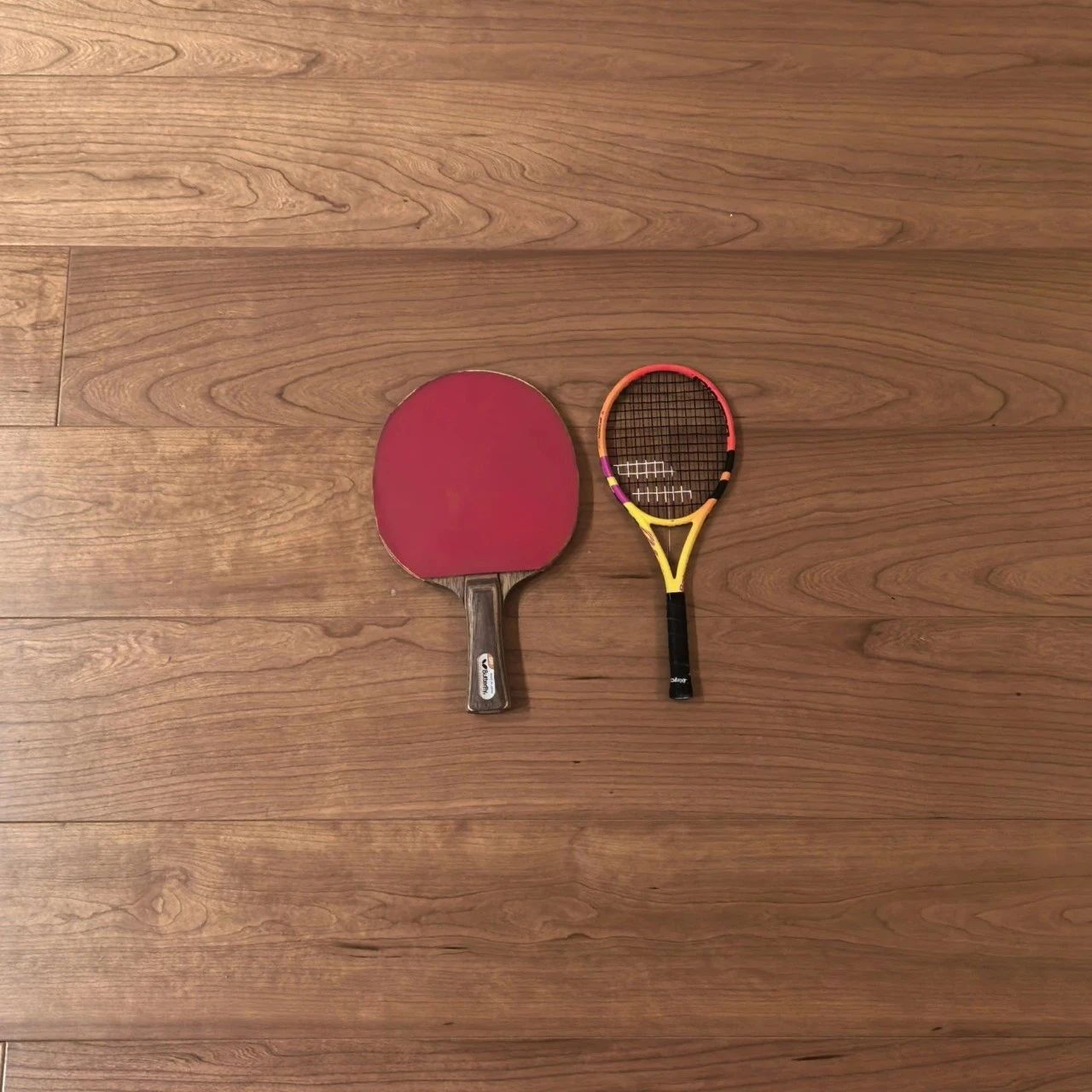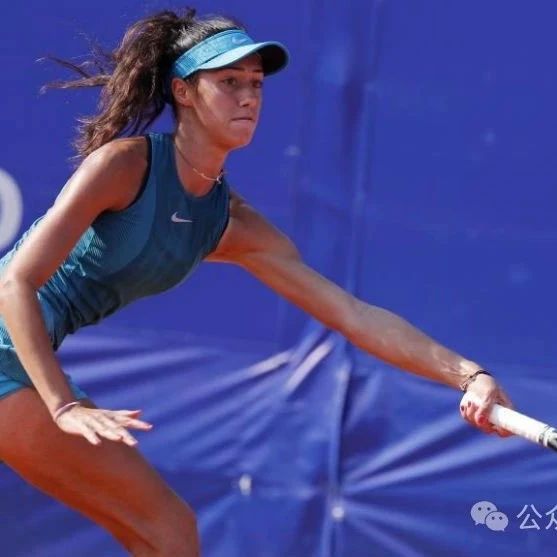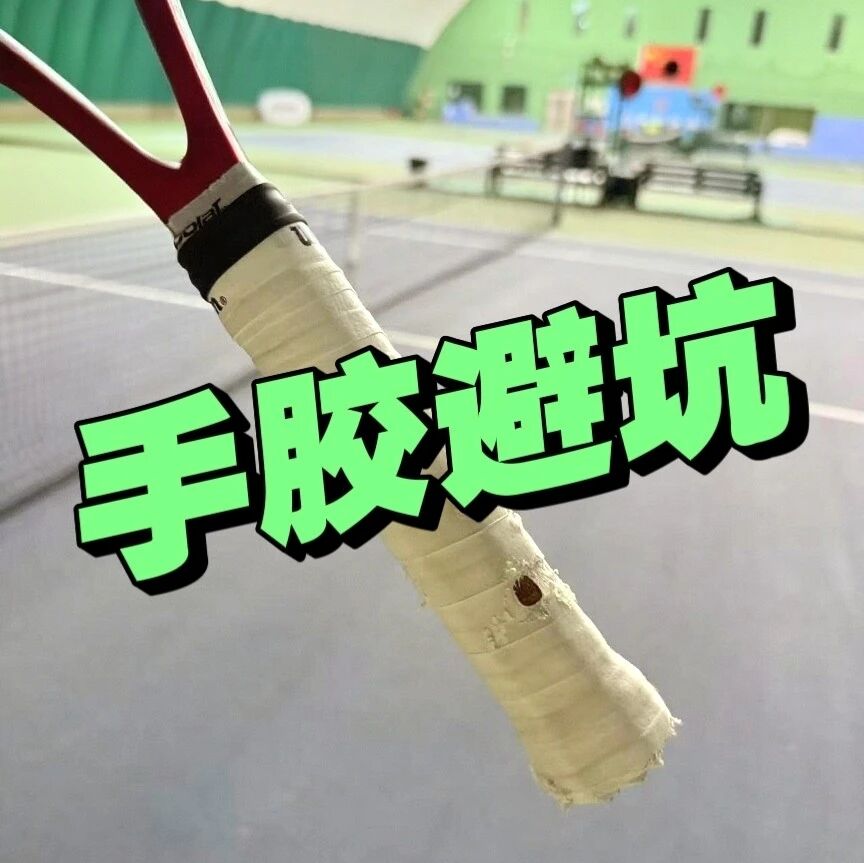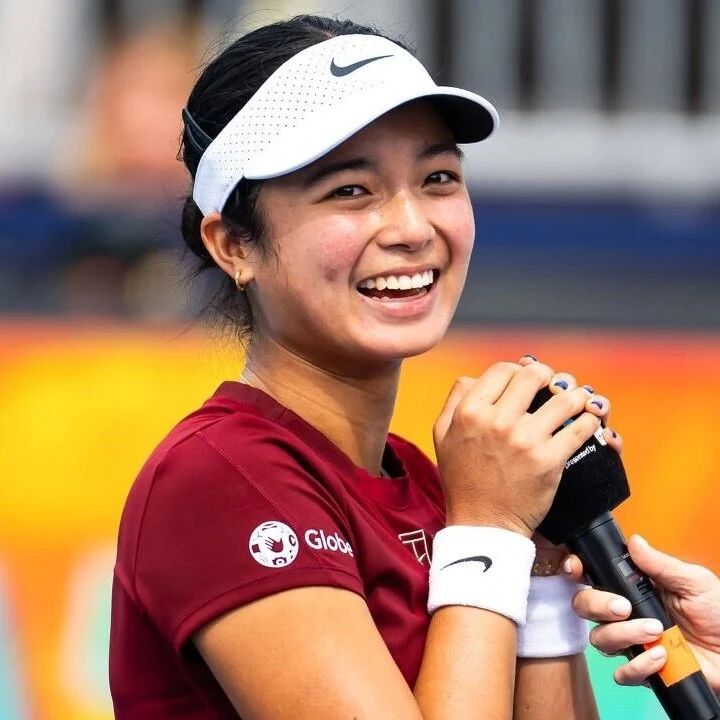What my father taught me: From table tennis to tennis

In the world of tennis, paternal love often serves as a footnote to legend.
Fans will always remember the deep father-son bond between Srdjan and Djokovic, and they’ll never forget how Richard paved the way for the Williams sisters to claim their championship victories—stories like these often resonate even more deeply than the trophies themselves.
Similarly, throughout my own athletic journey, I’ve had a father who stood by me every step of the way—from table tennis to tennis, his influence has always been present. And what he taught me goes far beyond just how to swing a racket.
Today happens to be Father's Day—so let me dive into the folds of my memory and unearth those unforgettable moments that have become woven into the fabric of my active, vibrant life.
01
Father is a mountain.
My father is definitely the "insurmountable" mountain in my table tennis career—but he wasn’t always that way from the start.
I still remember clearly how, when I was in elementary school, the village’s old cafeteria was transformed into a cultural and sports activity center. On the terrazzo floor, four brand-new ping-pong tables suddenly appeared—and that’s where my father and I first started learning to play the game together.
To systematically improve my skills, after learning that Teacher Xiao, who had graduated with a specialization in table tennis from Wutai Sports University, had returned to work in the county, my father went to great lengths to arrange for me to become her student.
Since it’s difficult for working families to afford tuition for two children to play sports, you’ll often find Mr. Xie at home—watching thoughtfully as a middle-aged man picks up balls from the basket while keeping an eye on the boy’s training.
During practice sessions, my father would often sit silently, completely focused—yet occasionally, I’d get distracted watching him and miss the pass, only for the next ball to smack right into my face (thanks to Teacher Xie’s incredibly strict coaching; this was her way of gently reminding me!).
“Son, listen to the coach and stay focused,” Dad would always say to smooth things over. But there was a good reason for my distraction—I noticed Dad secretly “learning from me.” After class, during our sparring sessions, he’d deliberately start using the techniques I’d just learned in lessons.
That’s how it happened—while I was learning, my father was secretly "stealing" the techniques. Amazingly, both Chen and his son ended up mastering the fundamental skills of table tennis.
My father gave up the best resources, choosing instead the more challenging path himself—his image was truly towering and inspiring. I had this realization when I was just ten years old.
My father's learning ability is incredibly high—truly exceptional.
What also leaves me far behind is his table tennis technique—my father is one of the rare amateur players who’ve mastered the backhand looping stroke perfectly.
Unlike when I was ten and only cared about whether playing was fun, my father’s improvement in table tennis skills has been clearly visible over time.
In an era when the internet wasn’t as advanced, my father repeatedly watched and meticulously studied the "Mastering Table Tennis" DVD—so much so that it eventually wore out. Once he had mastered the basics, various instructional guides became his trusted teachers.
After studying Zhu Shike’s chopping technique, learning Boll’s looping strokes, and finally mastering the tactics of "Two Ma and One Wang," I found myself unable to even score 5 consecutive points in a single game when playing against him again.
Back then, my dad would always joke, "Son, you’re a ‘regular army’ player when it comes to table tennis—don’t let this late-blooming amateur beat you!" In my teenage years, I’d stubbornly retort, "Winning? That’s just because you got lucky!"
It wasn’t until later, while researching tennis techniques and coaching methods, that the author realized the "learn—practice—review—adjust" model his father had been using was unmistakably a mainstream approach in sports training.
My father’s dedication to (research and study) is truly outstanding—truly, truly remarkable.
02
Father is a role model.
In family education, there’s a fundamental principle—leading by example through both words and actions. Unfortunately, my father is like a silent volcano: he relies more on "showing" than "telling," and when he loses his temper, he ends up spanking me. Yet, despite this, I still believe my father is a worthy role model.
The author recalls several painful experiences of getting scolded—mostly for things like crossing the street without looking both ways or showing disrespect to ancestors during Qingming Festival.
In both my studies and table tennis, even though I knew my father had high expectations for me, he never once spanked me for "fluctuating results" or "losing matches"—let alone offered any verbal criticism.
Correspondingly, my father is always teaching me through his actions.
For instance, the author, who was naturally playful at the time, clearly expressed that he didn’t want to practice ball. His father didn’t say a word—instead, he simply insisted on going to the activity center by himself every evening. As any curious teenage boy would be, his interest in his father’s routine couldn’t be hidden. Over time, this nightly father-son practice session after dinner became a regular part of their routine.
For instance, my father often taught me to remain humble on the court, to dribble the ball myself, and to maintain good sportsmanship. Yet, one time I noticed that when playing with Old Zheng, my father would frequently run to the opposite side of the table just to help him pick up the balls—something I simply couldn’t understand.
“Old Zheng has spinal arthritis, making it inconvenient for him to pick up the ball. If we let him move around less, we can all enjoy playing together for a bit longer. Don’t get hung up on these little things—being humble should come naturally. After all, sportsmanship always matters more than sheer skill.” This incident left a deep impression on me; whether it’s table tennis or tennis, I’ve always prioritized good sportsmanship above all else.
Although he’s just an ordinary, everyday person, to me, my father is exactly the kind of role model who leads by example and upholds impeccable moral integrity.
03
A father is always a question.
Historically, people have only credited parents' education as successful when their children achieve something remarkable. But after truly listening to the children themselves, we realize there’s only one kind of education that’s genuinely successful—education that resonates deeply with and is fully embraced by the "learner" themselves.
Pain-driven approaches are the nightmare for many gifted children, yet my father has always inspired my passion for sports—leading me straight toward self-actualization. I deeply admire this educational method, though I can’t help but wonder just how much effort he’s put into it.
Plant flowers in your heart, and life will never feel barren. The seeds of sports my father planted deep within me—those blossoms of passion and perseverance—I’m still savoring their beauty today. I continue to approach tennis with a spirit of relentless dedication, drawing strength from past challenges that have only made me stronger. And whenever life gets overwhelming, I turn to exhilarating matches as a way to release my emotions and find clarity once again.
I remember my father always working tirelessly to provide for our family, yet he was always willing to invest generously in my sports activities. Did he ever truly see sports as my future path, or was it simply out of love? I’m left wondering.
"Father's Bicycle" writes that a ten-year-old child admires his father, a twenty-year-old youth looks down on him, and a forty-year-old middle-aged man feels pity for his father.
Did my father sense the boundless admiration I had for him in my childhood, as well as the unwarranted “disdain” I sometimes directed his way during my youth—though deep down, there was also genuine concern for him? I wonder if he ever truly understood.
Unfortunately, none of these questions will ever have answers now—my father and I shared our final moments together on a winter day nine years ago. All I can do is carry these unanswered questions forward, along with the spiritual legacy he left behind, as I continue to live life fully, work diligently, and play my sport with passion.
In competitive sports, victory and defeat are unpredictable—but love knows no winners or losers. To me, my father will always be the GOAT of love.
Dad, I miss you.


